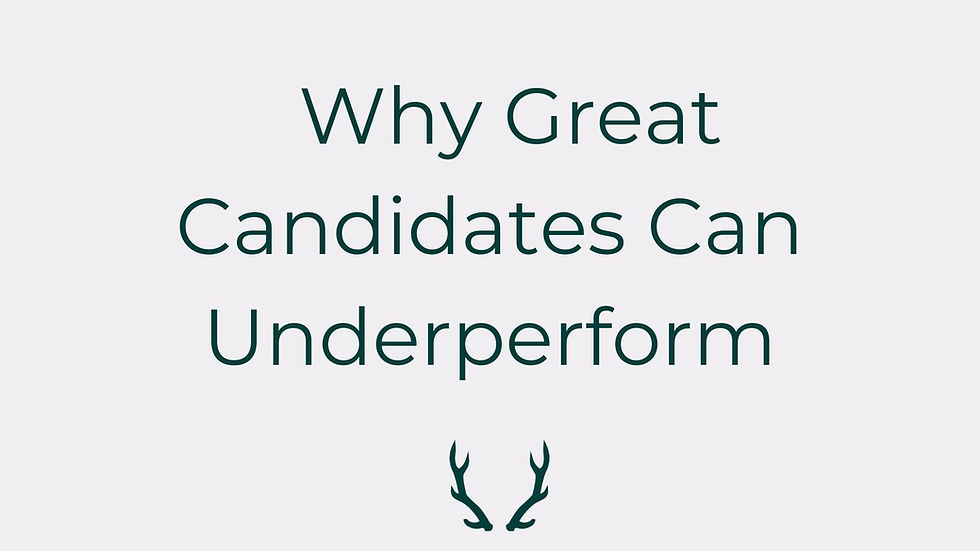How to Improve Your Interview Process for Better Results
- Joynes & Hunt

- Sep 17, 2025
- 2 min read
Hiring the right talent is one of the biggest challenges businesses face today. A well-structured interview process doesn’t just help you identify the best candidates, it also creates a positive candidate experience that strengthens your employer brand.
If your interviews feel inconsistent, rushed, or fail to produce strong hires, it may be time to refine your approach. Here are some actionable strategies to improve your interview process and achieve better results.
Define Clear Role Requirements
Before scheduling interviews, ensure everyone involved understands the skills, experience, and qualities needed for the role. Create a detailed job description that outlines responsibilities, must-have competencies, and cultural fit indicators. This clarity helps interviewers stay aligned and assess candidates objectively.

Standardise Your Interview Structure
Unstructured interviews often lead to bias and inconsistent results. Instead, create a structured interview format that includes:
Consistent questions for all candidates.
Scoring rubrics to evaluate responses.
Defined stages (phone screen, technical assessment, panel interview, etc.).
This makes it easier to compare candidates fairly and reduces unconscious bias.
Train Your Interviewers
Even experienced managers may not naturally know how to conduct effective interviews. Offer interviewer training on:
Asking open-ended, behaviour-based questions.
Avoiding leading or biased questions.
Actively listening and taking notes.
Providing timely and professional feedback.
Well-trained interviewers create a better candidate experience and make more reliable hiring decisions.
Use a Mix of Question Types
Go beyond “Tell me about yourself.” Include different question styles to get a well-rounded view:
Behavioral questions (e.g., “Tell me about a time you overcame a challenge.”)
Situational questions (e.g., “How would you handle a missed deadline?”)
Technical/skill-based tasks (relevant exercises or case studies).
This combination helps you measure both hard skills and soft skills.
Prioritise Candidate Experience

Interviews are a two-way street. Candidates are also evaluating you. To make the process positive:
Communicate clearly about timelines.
Keep interviews efficient and respectful of time.
Provide feedback when possible.
Showcase your company culture and values.
A positive interview experience improves your chances of landing top talent, even if they receive multiple offers.
Incorporate Technology Wisely
Modern tools can help streamline the process:
Video interviews for early screening.
Assessment platforms for technical evaluations.
Applicant tracking systems (ATS) to organise candidate information.
Just ensure technology enhances the process without making it impersonal.
Gather Feedback and Continuously Improve
After each hiring round, gather feedback from both interviewers and candidates. Were the questions relevant? Did the process feel fair? Was communication timely? Use this input to refine and strengthen your interview process.
Final Thoughts
Improving your interview process is about balance: structure with flexibility, efficiency with personalisation, and assessment with candidate care. By investing in a thoughtful interview strategy, you’ll not only make better hiring decisions but also build a reputation as an employer people want to work for.





Comments